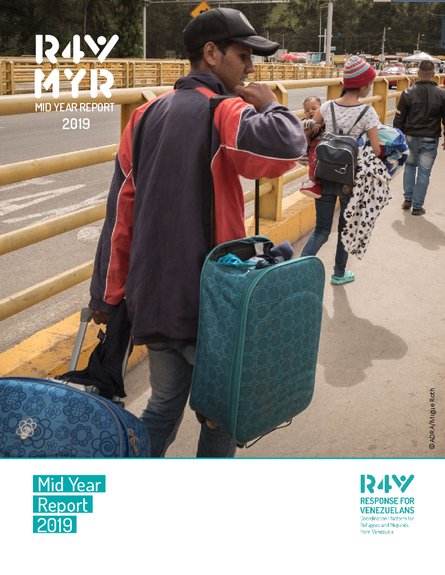
The political, human rights and socio-economic developments in the Bolivarian Republic of Venezuela (hereinafter Venezuela) continue to lead to the outflow of millions of refugees and migrants from Venezuela, especially into neighbouring countries. It is estimated that the number of Venezuelans in countries across Latin America and the Caribbean rose from almost 695,551 in 2015 to over 3.6 million at the end of June 2019. Globally, this figure is estimated at over 4.2 million Venezuelans, 75% of which are in South America. Countries in Latin America and the Caribbean demonstrate continuous solidarity and generosity towards Venezuelans and largely maintain an open-border policy. As of 5 June, almost 2 million residence and regular stay permits were granted in the region, while approximately 460 thousand asylum claims were filed. With an average steady rate of around 5,000 daily arrivals in countries bordering Venezuela, the international community concerns remain high as the vulnerabilities of the refugees and migrants from Venezuela increase and the national capacities to respond to them overstretch, leading sometimes to negative responses from host communities. Additionally, an increasing number of Venezuelans remain in an irregular situation due to various factors, including lack of documentation, administrative procedures, long waiting periods and high application fees, among others. Venezuelans who are not able to access a regular status become more vulnerable to all forms of exploitation and abuse, violence and discrimination.
This is the mid-year report of the activities implemented in the first semester of 2019 by the members of the Venezuela Situation Response Coordination Platform - R4V - in Latin America and the Caribbean.
